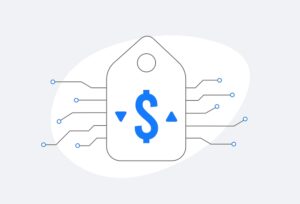 In late June, California lawmakers introduced and swiftly passed a controversial law that gives consumers unprecedented rights over sharing their data and personal information with companies. The California Consumer Privacy Act is the first official step an entity in the United States has made to address data privacy concerns following Europe’s GDPR, and is deemed the toughest data privacy law in the country.
In late June, California lawmakers introduced and swiftly passed a controversial law that gives consumers unprecedented rights over sharing their data and personal information with companies. The California Consumer Privacy Act is the first official step an entity in the United States has made to address data privacy concerns following Europe’s GDPR, and is deemed the toughest data privacy law in the country.
Companies big and small, in Silicon Valley and beyond, are up in arms about this legislation, saying it’s causing more damage than good. Retailers are angry that it will put an end to loyalty programs, because the law requires retailers to treat all customers the same–whether they offer or opt out of sharing their data. Marketers and advertisers are angry because, at first glance, they believe personalized marketing campaigns and location-based apps are at risk. Moreover, companies are frankly angry that the law was introduced and passed so quickly, and moved much faster than other legislation that they support.
But the law is past due and it is necessary because it will force companies to do what is right and what consumers deserve. There needs to be a grander shift in the way companies think about consumer data, and the organizations that will survive are the ones willing to put transparency and trust above transactions.
You May Also Enjoy:
It’s reasonable and perhaps even expected that companies are against this legislation. They have lived in a world where the vast improvements in technology at their fingertips have allowed them to capture anything and everything a consumer does digitally. Companies like Netflix have made product recommendations and personalization an expectation. Arguably, effective marketing requires personalization–in fact, personalization can deliver five to eight times the ROI on marketing spend and lift sales by 10 percent or more, according to McKinsey.
But organizations’ approach to collecting data to fuel personalization is broken and dated. More than $10 billion was spent on third-data party solutions in 2017, heavily relied on as the foundation for providing personalized experiences that 75 percent of consumers have grown to expect. Yet third-party data is weak – it’s often inaccurate, irrelevant and stale – and while it’s typically collected with the best intentions, it has led brands astray. Sixty-eight percent of consumers no longer trust brands to handle their personal information appropriately, and more than 60 percent of consumers express privacy concerns over how their online and mobile data is tracked.
Companies can comply with the California Consumer Privacy Act and at the same time rebuild customer trust by collecting and applying data in the most transparent way. Declared data, a type of first-party data that has been willingly and explicitly shared by an individual consumer, often about their motivations, intentions, interests and preferences, is one way to start. Declared data is a way for brands to shift from renting data to building their own data equity, and it brings data capture and activation into the open for consumers to understand and therefore trust. The California legislation will force brands to shift from data quantity to quality, and unique, first-party data will become not only a way to comply, but also a significant competitive advantage.
While the legislation doesn’t reach quite the same scale as the GDPR, an overwhelming majority of businesses will be impacted by nature of conducting business in California, and it is inevitable that other states like Georgia – and perhaps even the federal government – will follow suit in pursuing similar laws in the 18 months ahead. While some American businesses could get away with delaying their response to GDPR, they cannot afford to delay here.
The California Consumer Privacy Act should provide the impetus companies need to shift their behavior, but it will likely be the federal government that will ultimately wield enough power to hold businesses accountable. Regardless, consumers will be the ultimate regulators by putting their trust in, and money behind, businesses that are transparent, responsible and put their data to good use.
Jonathan Lacoste is president and co-founder of Jebbit.


 Network
Network

